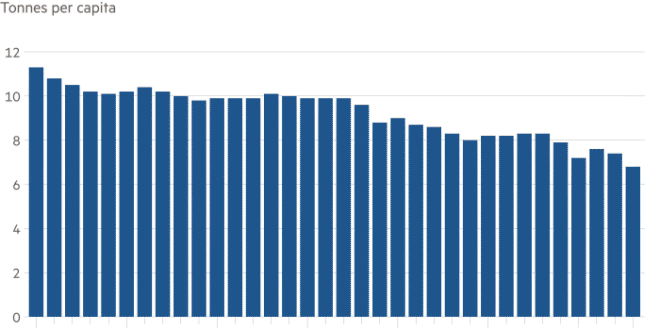This article is a version on-site of our Europe Express email newsletter. Subscribers can sign up. here Subscribe to the FT newsletter and receive it every Saturday morning, as well as on weekdays. Subscribers can upgrade to premium here or view all FT newsletters
Good morning. Donald Trump said that he would delay his threat to impose tariffs of 50% on the EU until July 9 following a phone call last night with European Commission President Ursula von der Leyen.
Today, our Brussels-based team explains how Spain is threatening to force its EU allies to recognize its minor languages and the current state of the Mercosur deal as it heads to showdown votes.
¿Qué?
Spain is attempting to muscle other EU countries into recognising Basque, Catalan and Galician as official languages of the EU — even going so far as to question the deployment of its troops in eastern states, Writer Barbara Moens The following are some examples of how to get started: Andy Bounds.
Context: Spanish Prime Minister Pedro Sánchez needs the votes of Catalan separatists led by the party Junts per Catalunya to pass substantive legislation in the Spanish parliament. These parties, along with the Basque, Galician, and Galician, demand that their language be recognized.
Spain was unsuccessful in its bid to add the languages to EU’s roster of 24 official languages. Tomorrow, EU ministers will vote again on the request.
Others are concerned that the recognition of the language could be a precedent, and balk at the extra translation costs. To garner support for the measure, Madrid has used carrots and sticks — deeply upsetting some EU allies.
Madrid has offered to pay for the annual translation and interpretation costs of €132mn, although diplomats doubt whether Spain will continue picking up the tab in the long run.
Other officials said that Spanish diplomats had also threatened to withdraw support from Madrid, if it did not receive the necessary backing. This could lead Madrid to reconsider its commitments in defence with some EU nations, including their troops stationed in the Baltics.
Spain, as the lone major holdout, is deploying around 600 troops to Latvia to participate in Nato’s forward defence deployments. The country also has jets that participate in patrols on the Baltic Sea and several that are based in Romania.
The Latvian Permanent Representative in Brussels has declined to comment about the threats. This comes as Nato fears Russian aggressiveness against eastern European countries.
“It’s bullying,” a diplomat informed of the threats stated. “And outrageous, especially at this time.”
According to a person in the Foreign Ministry of Spain, “Spain is committed to the security and presence of Spanish troops throughout Eastern Europe. This commitment is unconditional and firm.” It has never and will never be questioned.”
The Spanish government has worked with the member states to ensure that any questions they might have about the co-official language are answered in the final version of the document.
Some countries pressurize Poland, which currently holds the rotating EU Presidency, to remove the item from its agenda in order to allow more discussions.
Chart du jour: Surprisingly good

The EU has almost reached its 2030 climate targets to reduce greenhouse gases by 55 percent compared to 1990.
Counting votes
Both the European Parliament and the Council of EU Ministers are weighing in on the fate of the EU’s mega-mercosur trade agreement. Writer Andy Bounds The following are some examples of how to get started: Alice Hancock.
Context: After 20 years of negotiations, Brussels signed the agreement with four Latin American nations in December. But the trade agreement with Argentina Brazil Paraguay Uruguay must be ratified. It needs to be approved by the European Parliament and a majority of EU member states.
Officials state that the European Commission which negotiated the deal will submit it to the Polish president for approval in the month of June.
Mercosur is not popular among European farmers, as they do NOT want to be disadvantaged by Latin American imports of wheat and beef. France, Poland, The Netherlands, and other countries have publicly opposed Mercosur because of this opposition.
After the elections, Poland may change its stance to ensure that there are enough votes for the council. The situation is also complicated in the parliament where MEPs of the extreme left, extreme right, and Greens are against the pact.
Five Volt MEPs – a pan European liberal party that sits alongside the Greens in Strasbourg – have come out in support. Damian Boeselager, co-founder of Volt, told the Financial Times that the Mercosur agreement was “an opportunity to deepen ties with South American democracies, promote fairer trade standards . . . Damian Boeselager, co-founder of Volt, told the Financial Times that the Mercosur agreement was “an opportunity to deepen ties with South American democracies and promote fairer trade standards”.
Reinier Van Lanschot from Dutch Volt said that Mercosur offered the EU a soft power opportunity: “We shape the standards by being present at the table. We don’t walk away.”
What to watch today
-
German Chancellor Friedrich Merz will join informal meeting The Nordic Prime Ministers in Finland
-
EU development ministers meet.
-
Ministers of Agriculture and Fisheries in the EU meet.
Please read this article
Are you enjoying Europe Express? Sign up here You can have the newsletter delivered directly to your inbox each weekday, at 7am CET. On Saturdays, at noon CET. Tell us what you think! We love hearing from you. europe.express@ft.com. Follow the latest European news @FT Europe
 Costa News Spain Breaking News | English News in Spain.
Costa News Spain Breaking News | English News in Spain.







